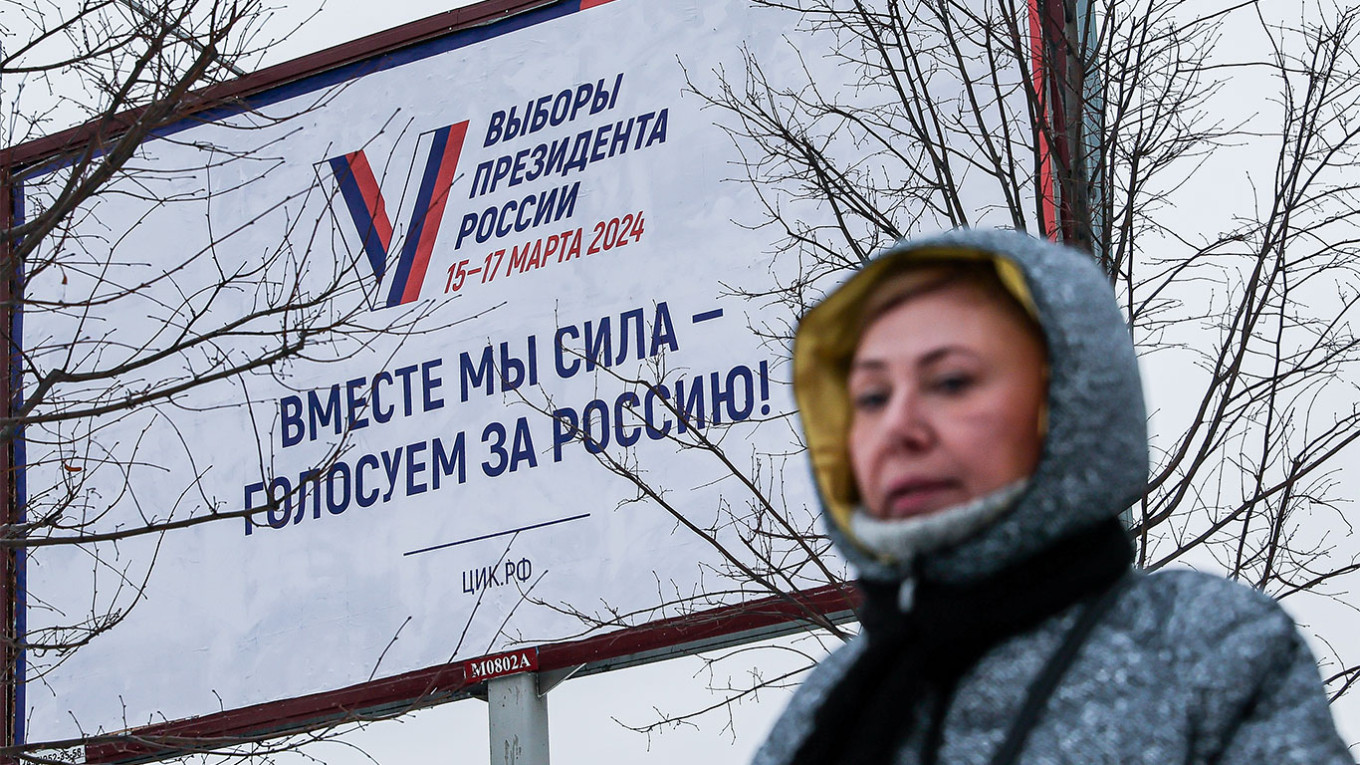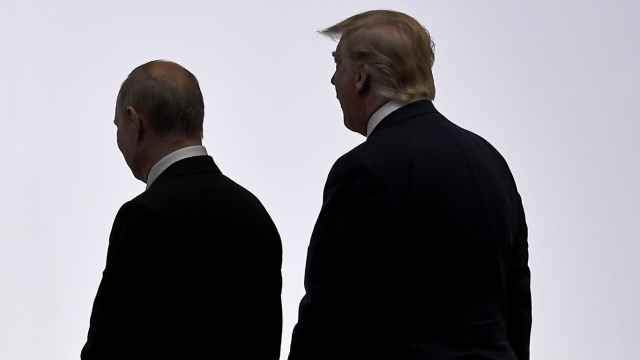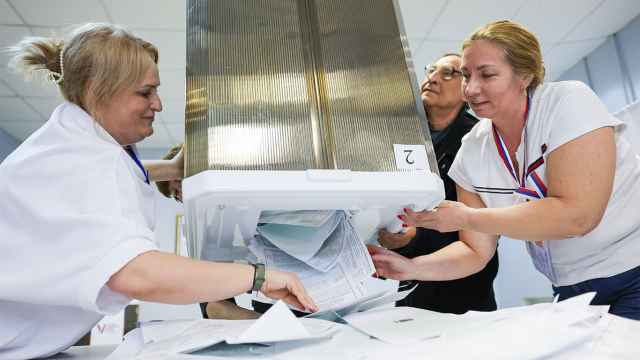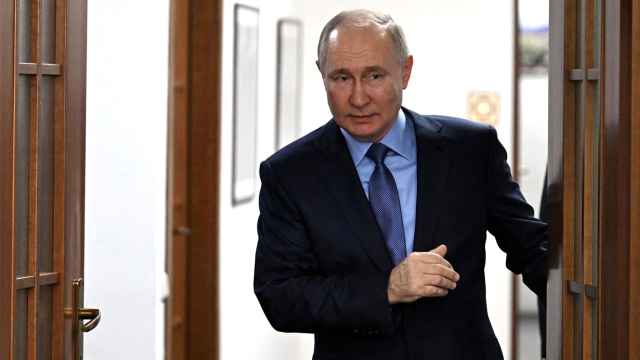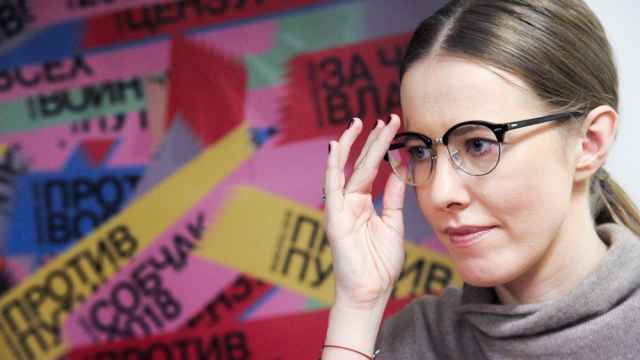A pro-war symbol and one of President Vladimir Putin’s favorite quotes have been chosen as the official logo and slogan of the 2024 presidential election, in what observers say is an effort to indirectly influence the public to vote for the incumbent leader.
The Central Election Commission (CEC) announced Monday that the Latin letter “V” in the colors of the Russian flag alongside the words “Together we are strong — vote for Russia!” would be used to promote the March 17 election.
The letter “V,” which first appeared on tanks headed toward Ukraine in early 2022, has since been used by Russian officials to signify support for the invasion — while Putin often uses the phrase “Together we are strong” at public events.
The presidential administration knew in advance that the CEC would propose a war-related logo design, The Moscow Times has learned.
“The Kremlin conveyed its wishes to the CEC in advance. [The logo] had to be clearly linked to the ‘special military operation’,” a source close to the presidential administration told The Moscow Times, using the Kremlin’s term for the war.
Putin in particular was “keen” to use this symbolism, added the source, who requested anonymity because he was not authorized to publicly discuss election preparations.
The symbol and slogan were chosen to indirectly show that the vote’s primary purpose is “to re-elect the boss [Putin],” two Russian government officials told The Moscow Times by phone.
“This phrase is associated with the president. For Russia, we have only Vladimir Putin. All the other candidates are not real competitors to him, pose no threat,” one of the officials said, requesting anonymity.
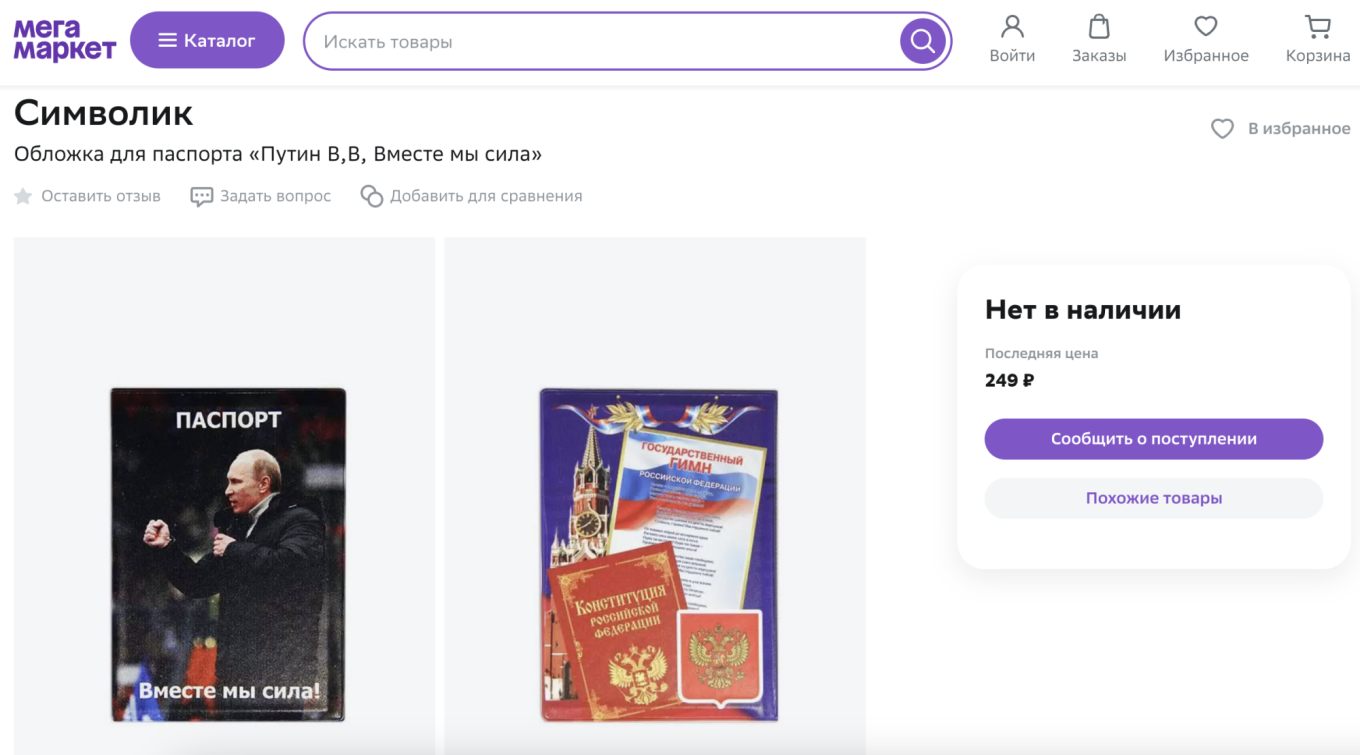
The slogan, though not a direct act of campaigning for Putin, can be seen as an indirect promotion of his candidacy because he often says it, independent election observers told The Moscow Times.
The letter “V,” which only became a public symbol after the invasion of Ukraine, is likewise an implied endorsement of the aggression against Ukraine that Putin launched, independent election expert Roman Udot said.
"Even if the CEC believes that the majority of citizens support the operation, one should not forget about the minority, whose rights the CEC should also take into account," Udot told The Moscow Times.
The Moscow Times has sent a request for comment to the CEC and is waiting for a response.
Putin’s merchandise
Since Putin’s inauguration over 20 years ago, Kremlin political consultants have painted him as a strongman. That image remains his trademark to this day.
But since the 2014 annexation of Crimea from Ukraine, Putin has also repeatedly invoked the theme of Russian unity against the unjust “intrigues” of the West.
These populist phrases and quotes often make their way onto the Putin merchandise commonly seen in Russian online stores and gift shops.
He has said the quote chosen as the CEC's slogan — “Together we are strong!” — several times in recent years, such as in 2018, when he spoke from a podium in annexed Sevastopol.
"We have become stronger because we are together!" he said in the fall of 2022 after the Kremlin claimed to have annexed Ukraine’s Donetsk, Luhansk, Kherson and Zaporizhzhia regions.
The phrase was also heard at last month’s ceremonial meeting in the Kremlin, where Putin agreed to run for a fifth presidential term.
"The military on the frontlines asked me to tell you, dear Vladimir Vladimirovich, to stay with us, because together we are strong, and with you, we will win, you are our president," one of the ceremony’s participants told Putin.
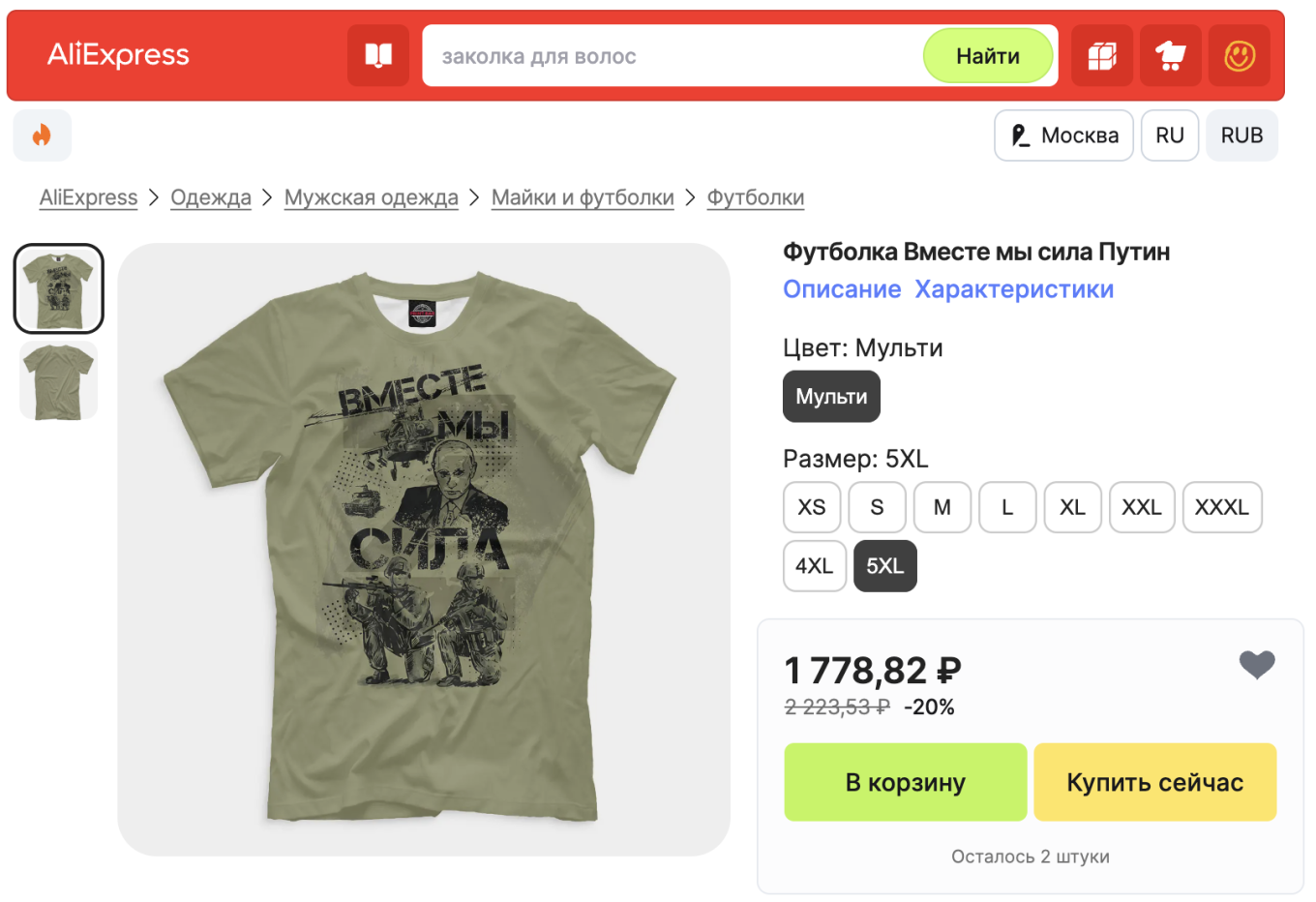
Today, one can buy a refrigerator magnet bearing this phrase, with a photo of young Putin against a background of the Russian flag and the double-headed eagle.
A passport cover priced at just over $2 shows Putin with a clenched fist and a tense expression as he speaks at a pro-Kremlin rally in Moscow. A similar badge is on sale for just 20 cents.
The Russian version of AliExpress sells an army-green T-shirt bearing the same phrase along with Putin's image flanked by two servicemen wearing tactical clothing and carrying rifles as a military helicopter flies overhead.
Election regulations
The CEC is required by law to inform voters about the election, Russian election lawyer Oleg Molchanov told The Moscow Times.
He said that he saw no sign of favoritism for Putin in the CEC’s chosen slogan.
“It is up to the CEC to decide how exactly to inform [the public]. This is often done with a single slogan,” Molchanov said. “Its quality is subjective. Any slogan will be liked by some, and disliked by others. Some people might see a call to action, which is not prohibited by law, others might not.”
Konstantin Kostin, a former senior Kremlin official who now heads a foundation close to the Kremlin, also said he did not see an effort to influence the public to vote for Putin in the campaign branding.
“The objective of the campaign is to stimulate turnout. The idea together plus appealing to the patriotic consensus,” Kostin told The Moscow Times.
Putin has always exploited the theme of “strength,” said political analyst Abbas Gallyamov, a former Putin speechwriter turned exiled critic.
“So we can assume that the current slogan was deliberately invented for the CEC to indirectly strengthen Putin's position and create a sense of a lack of alternatives,” Gallyamov told The Moscow Times.
In Russian elections at all levels, official information campaigns often resemble those of candidates from the ruling United Russia party — “sometimes to the point of confusion,” David Kankia, an elections analyst at independent election monitor Golos, told The Moscow Times.
The same political consultants will often produce campaign posters for election commissions and United Russia candidates at the same time, Golos co-chair Andrei Buzin said.
“From the legal standpoint, there is probably no violation,” Kankia said. “But from the point of view of common sense, there is.”
A Message from The Moscow Times:
Dear readers,
We are facing unprecedented challenges. Russia's Prosecutor General's Office has designated The Moscow Times as an "undesirable" organization, criminalizing our work and putting our staff at risk of prosecution. This follows our earlier unjust labeling as a "foreign agent."
These actions are direct attempts to silence independent journalism in Russia. The authorities claim our work "discredits the decisions of the Russian leadership." We see things differently: we strive to provide accurate, unbiased reporting on Russia.
We, the journalists of The Moscow Times, refuse to be silenced. But to continue our work, we need your help.
Your support, no matter how small, makes a world of difference. If you can, please support us monthly starting from just $2. It's quick to set up, and every contribution makes a significant impact.
By supporting The Moscow Times, you're defending open, independent journalism in the face of repression. Thank you for standing with us.
Remind me later.



